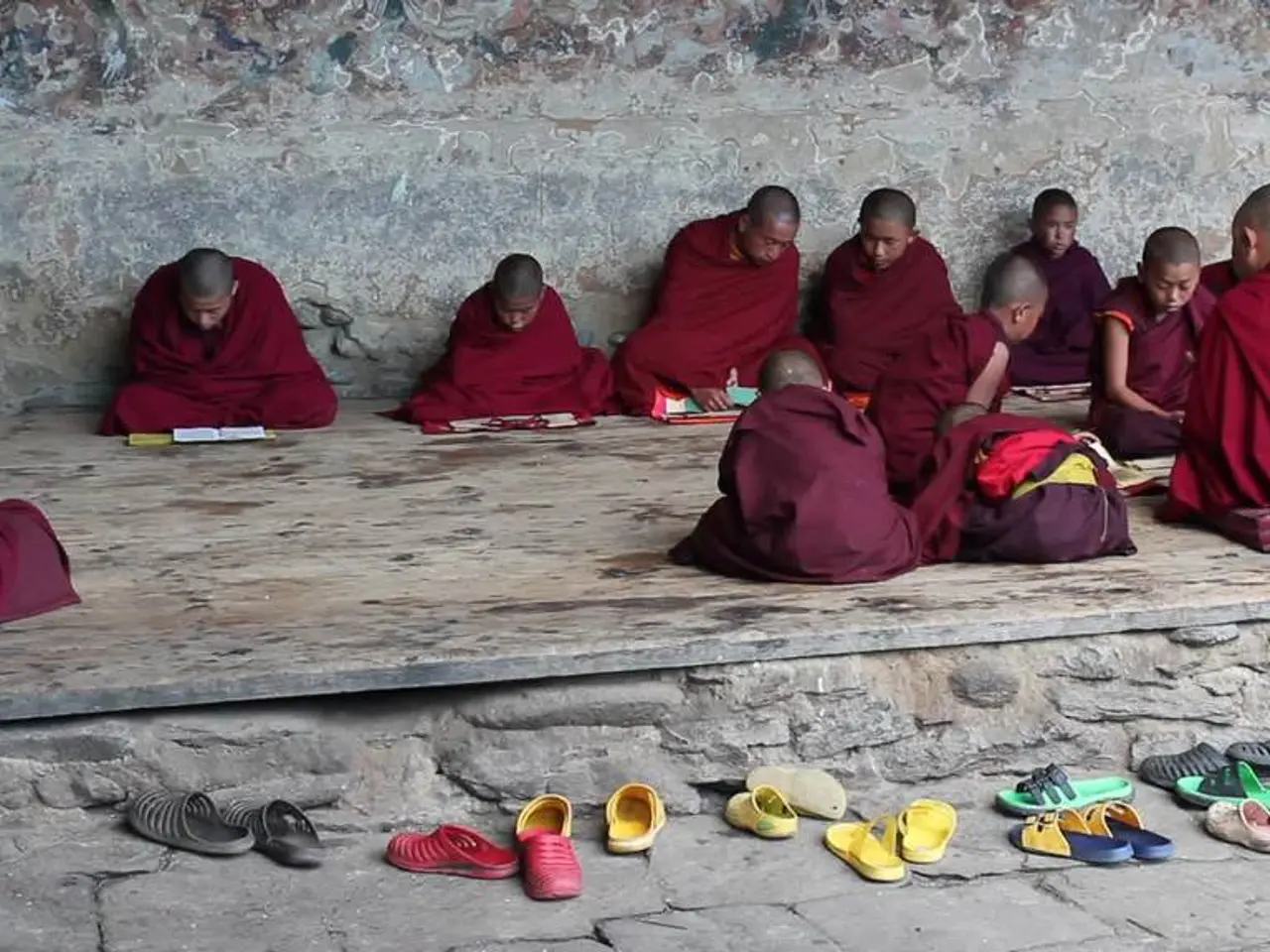Thai woman tricked monks into extortion by claiming lost casino funds
A major scandal has rocked Thailand's Buddhist community, involving high-ranking monks and a massive blackmail scheme orchestrated by a woman named Wilawan Emsawat. The scandal, which has been unfolding over the past few months, has led to the arrest of the woman, the defrocking of several monks, and a widespread call for accountability and reform within religious institutions.
At the heart of the scandal is a complex web of sexual misconduct, extortion, and the misuse of temple funds. At least 11 monks have been accused of sexual misconduct and extortion, with allegations that they used donations to pay hush money to Wilawan, who seduced them, secretly recorded their sexual acts, and then blackmailed them.
Wilawan is accused of extorting approximately 385 million baht (around $10 million) over the past few years. She allegedly used these funds for illegal online gambling and personal expenses. Wilawan was arrested at her home in Nonthaburi on charges including extortion, money laundering, and receiving stolen goods.
The investigation began after a prominent monk left the monkhood following allegations of blackmail. Six senior monks have since been defrocked as part of the ongoing investigation. The National Office of Buddhism and the Royal Thai Police are conducting a full probe into the misconduct.
King Maha Vajiralongkorn has condemned the behavior of the monks involved, canceling the attendance of over 80 monks at his birthday celebration. A new task force has been formed to investigate misconduct within temples, highlighting concerns about corruption and abuse of power within the clergy.
The scandal has shocked the Thai public, as Buddhism plays a central role in Thai culture. Many have expressed disappointment and a loss of respect for monks involved. The scandal has led to discussions about accountability within religious institutions and the need for transparency and reform.
Wilawan allegedly befriended monks, initiated romantic relationships, and obtained compromising material to blackmail them. The scheme involved over 80,000 nude images and videos recovered by authorities. She claimed one of the monks had fathered her child and demanded financial assistance, further complicating the blackmail scheme.
The woman specifically targeted influential and high-ranking monks for the scam. A substantial part of Emaswat's earnings was spent in casinos, both in Thailand and abroad. The crime was revealed at a press conference held by representatives of Thailand's Central Bureau of Investigation (CBI) in Bangkok.
Similar sex and financial scandals have surfaced in Thai Buddhist temples multiple times a year. The sensitive nature of the case lies in the fact that most Thai monks follow the Theravada tradition, which strictly observes celibacy.
Thai media outlets and social media platforms are abuzz with this event, making it the most talked-about topic. If found guilty, Emaswat could face a lengthy prison sentence. Many monks chose to pay the blackmailer to avoid public shame.
The case files have been forwarded to the court for review. Citizen reports are helping to expand the circle of suspects and uncover additional criminal episodes. This case is noteworthy due to its scale, number of high-ranking monks involved, large sums of money, and public impact.
- What about the alleged use of science to uncover evidence in this crime-and-justice case involving Wilawan Emsawat and the Thai Buddhist community? Could forensic analysis of the 80,000 nude images and videos possibly provide more insight?
- In light of the health-and-wellness implications of this scandal, what measures are being taken to ensure the psychological well-being of the monks who were blackmailed, and to prevent similar incidents in the future?
- Given the substantial amount of general-news media coverage about this scandal, how might the ongoing discussion about accountability within religious institutions influence public perceptions regarding sexual health and the role of celibacy in Buddhism?




